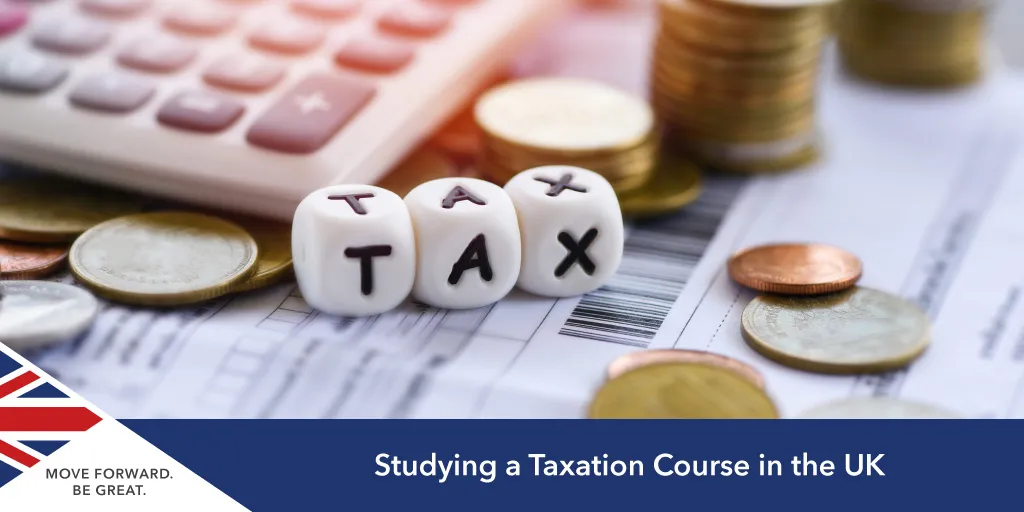Whether you're keen on a tax consultant course or more advanced specialisations, studying an accounting and finance tax-related course in the UK offers a wealth of options to meet your interests.
Studying taxation in the UK provides an in-depth understanding of the complexities of the tax system. It covers personal income tax, corporate tax, value-added tax, and international tax principles. Taxation courses are designed to equip you with the analytical skills and practical knowledge to navigate tax regulations. The UK's globally recognised universities and teaching methods ensure that your chosen taxation course will set a firm foundation for your career.
Learn more about studying for a taxation degree in the UK below, or book a free consultation with SI-UK India today to begin your application.

Top 10 UK Universities for Studying Taxation
1. London School of Economics
The MSc Accounting and Finance course at LSE provides an in-depth and stringent exploration of key accounting and finance subjects. This course provides an in-depth analysis in financial reporting, management accounting, finance, economics, and quantitative methods. Students have the liberty to concentrate on either accounting or finance, or they can choose a balanced course that encapsulates both domains.
- Course to consider: MSc Accounting and Finance
- Entry requirements: 2:1 bachelor's degree or equivalent in accounting and finance, taxation or related subject.
- International fees: £34,128
2. University of Warwick
The MSc in Accounting and Finance at Warwick Business School immerses students in contemporary theories and advanced techniques. Students get to scrutinise the effects of accounting decisions on markets and businesses, studying accounting within a broader societal framework. The course offers students the tools necessary for a range of financial and accounting careers on an international stage.
- Course to consider: Accounting and Finance (MSc)
- Entry requirements: First Class Honours degree or a high 2:i undergraduate degree (or equivalent) in a related subject.
- International fees: £32,250
3. University of Aberdeen
Seasoned accounting professionals with real-world business integration teach the Accountancy MA at the University of Aberdeen. The course's close ties with employers, realistic business scenarios, and access to professional training facilities, such as the Bloomberg finance lab, enrich the learning journey. The curriculum touches upon various crucial subjects, including finance, accounting, taxation, entrepreneurship, sustainability, audit theory, and public sector accounting.
- Course to consider: Accountancy, MA
- Entry requirements: A level- Standard: BBB. International Baccalaureate - 32 points, including 5, 5, 5 at HL. SQA Highers Standard: AABB
- International fees: £20,800
4. University of Edinburgh
The MA Accounting and Finance course at the University of Edinburgh trains students to face and respond to challenges in business, government, and non-profit bodies. Edinburgh’s accounting courses are accredited by esteemed business education bodies, ensuring a high quality academic atmosphere. Upon graduation, students can move on to various career paths in accountancy, finance, strategy, marketing, human resource management, data analytics, and entrepreneurship.
- Course to consider: MA Accounting and Finance
- Entry requirements: SQA Highers: AAAAA (achievement by end of S5 preferred). BBB must be achieved in one year of S4-S5. A Levels: A*AA. IB: 39 points with 666 at HL.
- International fees: £24,500
5. University of Bath
The University of Bath's MSc in Accounting and Finance offers a thorough understanding of accounting, finance, and taxation theories with a strong emphasis on practical skills, paired with a theoretical foundation, enabling students to dissect accounting information and financial decisions in real-world contexts.
- Course to consider: Accounting and Finance MSc
- Entry requirements: 2:1 or above (or international equivalent) undergraduate degree. Your degree can be in any discipline, but a quantitative background/aptitude is required.
- International fees: £29,500
6. University of Glasgow
A master's degree in accounting and finance blends practical know-how and theoretical understanding in the domains of accounting and financial management. The course highlights aspects like internal corporate governance, external corporate reporting, financial markets, taxation, and cultivating critical reasoning about the financial business landscape.
- Course to consider: International Accounting & Financial Management [MAcc]
- Entry requirements: 2.1 Honours degree or non-UK equivalent in any subject, with at least five courses in accounting or finance.
- International fees: £32,850
7. Bangor University
The first year of Bangor University's BSc in Accounting and Finance delves into economics, financial accounting, management accounting, and business analytics. Optional modules are available in financial techniques, analysis, personal finance, and banking. In the second year, it offers optional modules in econometrics and investment and portfolio management. The third year encompasses modules on taxation and optional subjects like corporate governance, financial statement analysis, and fintech in banking and finance.
- Course to consider: BSc (Hons) Accounting and Finance
- Entry requirements: 104 - 136 tariff points from a Level 3 qualification. International Baccalaureate Diploma: accepted, pass required.
- International fees: £16,000
8. Durham University
While studying Durham University's BSc Accounting, students delve into subjects like Business Law for Accountants, imparting an understanding of English law principles and their impact on businesses. The focus in the second year shifts to Financial Management, Performance Management, and an extensive exploration of Taxation. The third year encompasses modules on Corporate Reporting, Tax Planning for Business, Corporate Governance, and Audit and Assurance. The Principles of Taxation module introduces basic tax computations and guidance for individuals and corporations.
- Course to consider: BSc Accounting
- Entry requirements: A-level offer—AAB. IB score—36, including 665 in higher-level subjects. If Mathematics is not taken at a higher level, then it is required at standard level 6.
- International fees: TBA
9. University of Leeds
The University of Leeds' BSc in Banking and Finance delivers a comprehensive three-year curriculum. In the first year, students grasp the basics of finance and financial information analysis, complemented by modules in mathematics and economics. The second year entails compulsory modules on banking systems and commercial banking, supplemented by specialised choices such as credit analytics and management accounting.
- Course to consider: Banking and Finance BSc
- Entry requirements: A-level: AAA. GCSE: 5 GCSEs at grade C/4 or higher, including Mathematics grade A/7 and English Language grade B/6 or equivalent, or an appropriate English language qualification.
- International fees: TBA
10. University of Strathclyde
The BA Economics & Finance degree at the University of Strathclyde Business School delves into various business disciplines and fundamental modules in international business, business knowledge, and academic skills. Students begin to specialise in their chosen subjects starting from the second year. The Management Development course (MDP) is a crucial element of the course, which promotes active problem-based learning and integration of business knowledge.
- Course to consider: BA Hons Economics & Finance
- Entry requirements: Highers Standard entry requirements*: 1st sitting: AAAA/AAABB 2nd sitting: AAAABB. A Levels ABB-BBB. International Baccalaureate 32-30
- International fees: £17,400
Study a Taxation Course in the UK
If you want to study a taxation course in the UK, arrange your free consultation today.
Taxation Course FAQ
Where can I learn tax in the UK?
Many universities offer taxation as part of their finance or accounting degree courses. Universities like the London School of Economics (LSE), Oxford, and Cambridge have courses that include tax studies. For professional education, you might look into courses offered by the Association of Taxation Technicians (ATT) or the Chartered Institute of Taxation (CIOT). These courses will lead to professional qualifications in taxation.
How do I become a tax accountant in the UK?
To become a tax accountant in the UK, you will typically need to follow these steps:
- Obtain a bachelor's degree in a relevant field such as accounting, finance, or business.
- Gain some relevant work experience. This could be through internships or placements during your degree or work after graduation.
- Obtain a professional qualification in taxation from a recognized body such as the Association of Chartered Certified Accountants (ACCA), the Institute of Chartered Accountants in England and Wales (ICAEW), or the Chartered Institute of Taxation (CIOT). This typically involves passing a series of exams and gaining practical experience.
- Continue to stay updated with tax law and practice changes through continuing professional development (CPD).
What is a master's degree in tax in the UK?
A master's degree in Tax in the UK is a postgraduate qualification that provides in-depth knowledge about taxation. The course generally covers the principles of taxation, UK tax law, international taxation, corporate taxation, personal taxation, and tax planning. This kind of course benefits those aspiring to become tax consultants or advisors, tax accountants, or those who intend to pursue a career in tax law. Universities such as the University of Birmingham, University of Law, and King's College London offer this course.
Which course or degree is best for a tax consultant?
To become a tax consultant, a comprehensive understanding of taxation is crucial. Thus, the best courses would cover a wide range of tax-related topics. A degree in accounting or finance often provides this foundational knowledge. To specialise in taxation, consider undertaking professional qualifications like the Chartered Tax Advisor (CTA) qualification offered by the UK's Chartered Institute of Taxation (CIOT), or a Master's degree in Taxation.












 I sincerely thank SI-UK for getting me accepted to UCL. The MSc in Urban Development and Planning is extremely competitive, but the right guidance provided by SI-UK made my dream of studying at University College London a reality. The services were exceptional from beginning to end.
I sincerely thank SI-UK for getting me accepted to UCL. The MSc in Urban Development and Planning is extremely competitive, but the right guidance provided by SI-UK made my dream of studying at University College London a reality. The services were exceptional from beginning to end. 

